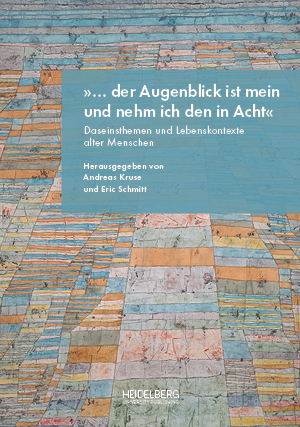How to Cite
License (Chapter)

This work is licensed under a Creative Commons Attribution-ShareAlike 4.0 International License.
Identifiers (Book)
Published
Die Perspektive der Institutionen: Wie stellen sich diese auf das hohe Alter ein?
Abstract This chapter focuses on the question of how representatives of institutions responsible for offering infrastructural services for older people interpret vulnerabilities and potentials in old age, the ability to influence old age and the possibilities for intervention in old age. 25 focus groups, each with five to seven participants, were offered to representatives from municipalities, districts, associations, clubs, senior citizens’ representatives, and health and long-term care insurance funds. Three topic areas were defined and discussed in these groups. In a further step, five consensus groups of 25 to 27 people each were put together, to whom the most important findings of the study were presented and in which conclusions were derived from the study results. The topics discussed in the focus groups produced a highly differentiated view of designing social and cultural services as well as the provision of care. In many respects, this view proved to be “complementary” to the results obtained in the interviews with older people. This conclusion was also drawn in the consensus groups. It also became apparent that the statements made in the focus and consensus groups speak for a sophisticated and differentiated reception of gerontological findings in the professional world of “old age practice”.
Keywords Civic engagement, finitude, plasticity, social change, welfare state






